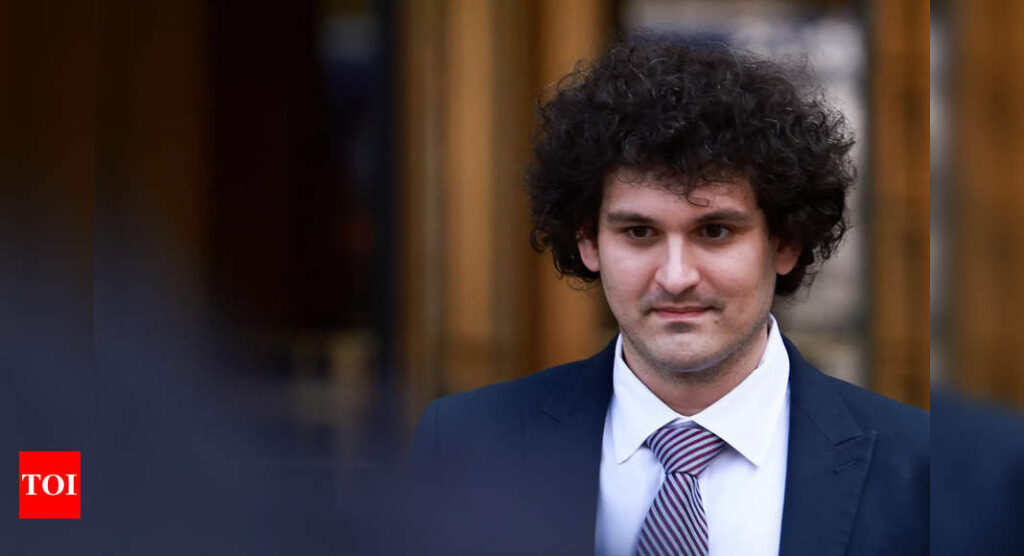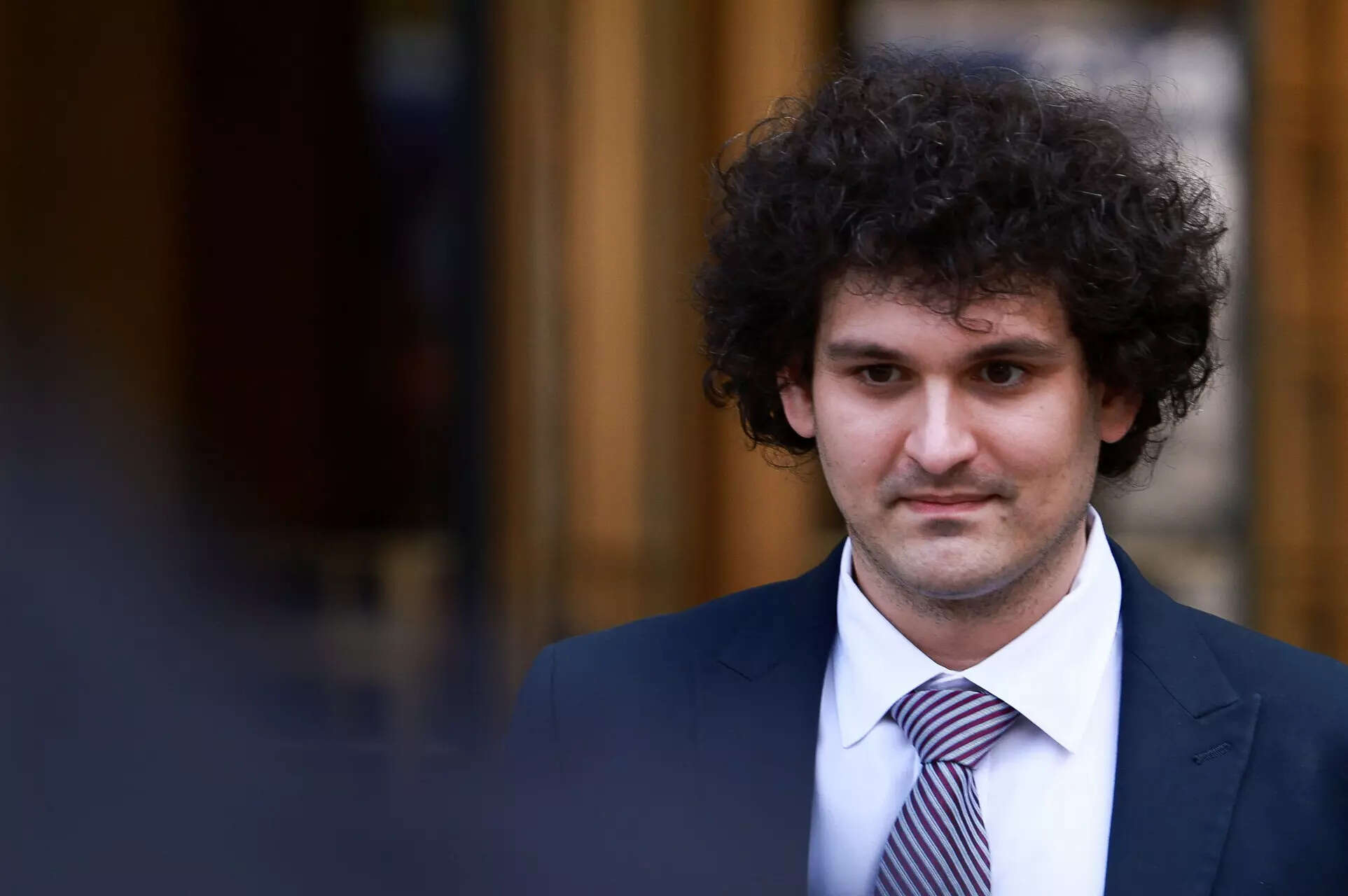[ad_1]
The verdict was delivered by US District Judge Lewis Kaplan during a hearing held in a federal court in Manhattan, a mere two months ahead of the planned October trial for fraud.
“He has already – without violating any other bail condition save that he not commit another crime – gone up to the line over and over again,” Kaplan said in a hearing in Manhattan federal court.
“There is no condition or combination of conditions of release that will assure that the defendant will not pose a danger to other persons or the safety of the community,” the order said. Bankman-Fried “crossed a line toward improperly influencing those prospective jurors and intimidating a witness and sending a message to other prospective witnesses,” it said. “Witness tampering is not constitutionally protected speech.”
With a downcast expression, Bankman-Fried bowed his head as Judge Kaplan meticulously expounded upon his decision. The judge contended that Bankman-Fried had relentlessly pushed the boundaries of his $250 million bail agreement to a degree where Kaplan could no longer guarantee the safety of the community, including the security of witnesses for the prosecution, unless the 31-year-old entrepreneur was incarcerated.
In the courtroom gallery, Bankman-Fried’s parents, who are both law professors at Stanford University, were in attendance. His mother, Barbara Fried, tearfully nodded at him as he departed. His father, Joseph Bankman, placed his hand over his heart while observing his son’s departure.
Following the conclusion of the proceedings, Bankman-Fried removed his suit jacket and tie, surrendering his watch and personal belongings to his legal representatives. The sound of handcuffs clinking was audible as his hands were restrained in front of him. US marshals then led him out of the courtroom.
The moment marked a stunning descent for a figure who had presented himself as a “cryptocurrency industry savior,” testifying before Congress and enlisting the endorsements of celebrities like Larry David, Tom Brady, and Stephen Curry to promote his enterprises.
Prosecutors alleged that Bankman-Fried misappropriated billions of dollars in FTX customer deposits to finance his businesses and speculative investments, contributing significant sums to charitable causes, and making unlawful political contributions to both Democrats and Republicans. These contributions were ostensibly aimed at influencing cryptocurrency regulation in Washington.
Judge Kaplan asserted that there was substantial cause to believe Bankman-Fried had engaged in at least two instances of witness tampering since his arrest in December. One involved showing a journalist the private writings of a former girlfriend, a key witness against him, while the other pertained to an encrypted communication with FTX’s general counsel in January.
The judge concluded that it was probable that Bankman-Fried had endeavored to sway not only potential trial witnesses but also other undisclosed individuals, urging them to withhold cooperation with the government or to retract their support.
The order for incarceration, signed by Judge Kaplan, cited probable cause to suspect Bankman-Fried of committing the federal offense of attempted witness tampering.
Bankman-Fried’s legal team maintained that their client’s intentions were innocent, contending that he should not be imprisoned for seeking to safeguard his reputation amid a barrage of negative news coverage.
Attorney Mark Cohen appealed to the judge to suspend the incarceration order for an immediate appeal, but the request was denied. Within an hour, Bankman-Fried’s defense lawyers filed a notice of appeal.
Bankman-Fried spent the night at the Metropolitan Detention Center in Brooklyn, a facility that previously housed figures such as “pharma bro” Martin Shkreli and convicted sex offenders R. Kelly and Ghislaine Maxwell.
Previously under house arrest at his parents’ residence in Palo Alto, California, Bankman-Fried’s bail conditions imposed stringent restrictions on his internet and phone usage.
Judge Kaplan noted that these strictures did not prevent Bankman-Fried from contacting a senior FTX lawyer in January, expressing a desire to “reconnect and see if there’s a way for us to have a constructive relationship.” The judge interpreted this communication as potentially indicative of Bankman-Fried’s involvement in or attempt to commit a federal felony while on release.
In the preceding weeks, prosecutors surprised Bankman-Fried’s legal team by petitioning for his imprisonment, alleging that he had violated these rules by sharing private writings of his former girlfriend, Caroline Ellison, with The New York Times. Prosecutors argued that this was an attempt to tarnish her reputation and influence potential jurors for his upcoming trial in October.
Judge Kaplan maintained that the excerpts of Ellison’s communications shared by Bankman-Fried were of a nature that one would typically refrain from sharing, except with the intention to harm, discredit, or intimidate the subject.
Ellison, who had previously served as CEO of Alameda Research, a cryptocurrency trading hedge fund connected to Bankman-Fried, had pleaded guilty in December to charges carrying a potential prison sentence of 110 years. She had agreed to cooperate as a witness against Bankman-Fried in exchange for a potentially lighter sentence.
Bankman-Fried’s defense team argued that their client’s attempt to defend his reputation had likely backfired, as the article ended up portraying Ellison in a sympathetic light. They also accused prosecutors of presenting evidence based on “innuendo, speculation, and scant facts” in their bid to have him incarcerated.
Following the prosecutors’ detention request, Judge Kaplan imposed a gag order on trial participants, prohibiting them from making public comments. However, a lawyer for The New York Times noted the First Amendment implications and the public interest in Ellison’s case and her cryptocurrency trading firm.
(With inputs from agencies)
[ad_2]
Source link











More Stories
India’S Growth Forecast: S&P ups India’s FY’24 growth forecast to 6.4% on robust domestic momentum
India to remain fastest-growing major economy, but demand uneven: Poll
Jack Ma: Jack Ma gets back into business with ‘Ma’s Kitchen Food’